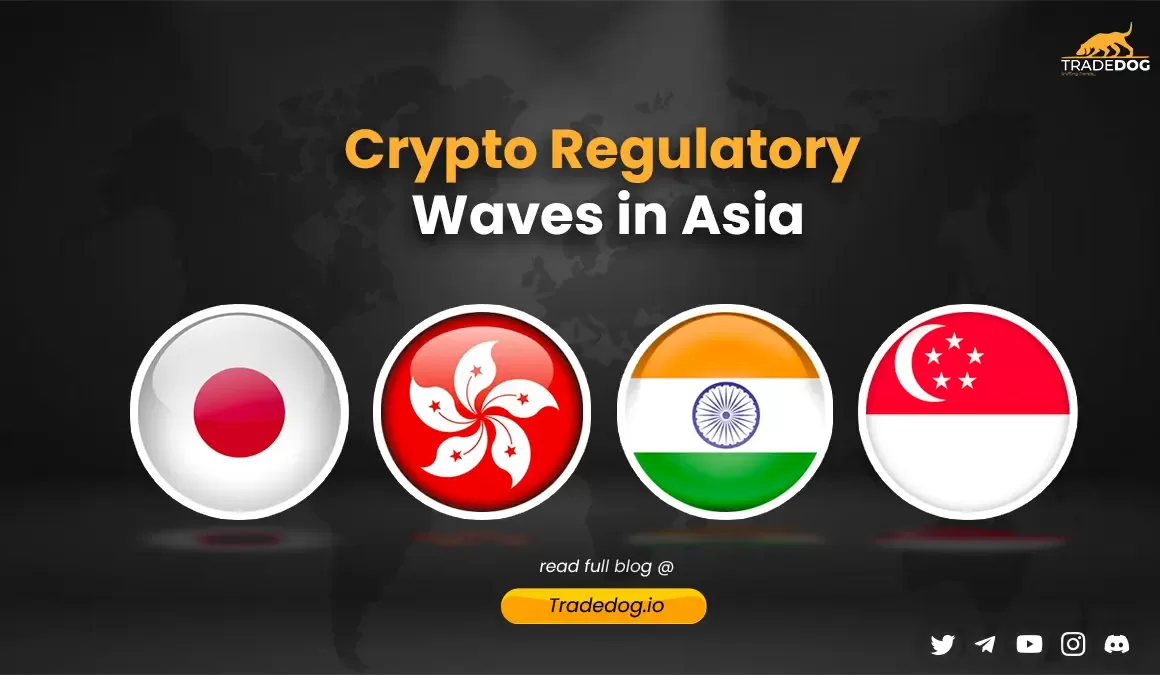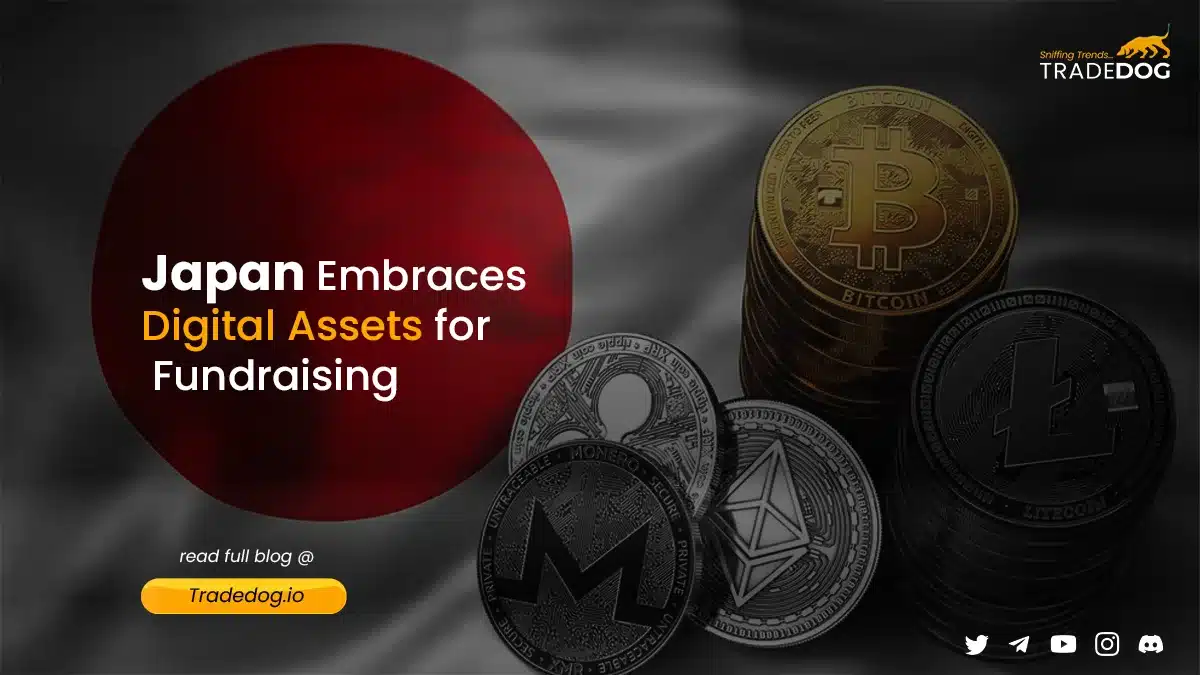Quick Links
Asia is rapidly emerging as the epicenter of growth for the cryptocurrency market. While regulatory uncertainties and legal battles continue to plague crypto exchanges in the United States, Asia has become a beacon of growth and opportunity. Billions of dollars in trading volumes are flocking to the region, driven by the implementation of robust regulatory frameworks and the fierce competition among jurisdictions to attract digital-asset traders. In this blog, we will explore the regulatory landscape of Asia along with the recent movement and expansion of top exchanges in this thriving market.
Singapore
Singapore has established a balanced regulatory framework for cryptocurrencies and related entities. The Monetary Authority of Singapore (MAS) introduced the Payment Services Act (PSA) in January 2020, which regulates traditional and cryptocurrency exchanges. Approved cryptocurrencies, such as Bitcoin and Ether, are treated as legal assets. Businesses dealing with digital payment tokens (DPTs) must obtain a payment institution license and adhere to anti-money laundering (AML) and combating the financing of terrorism (CFT) guidelines.
The MAS issued Notice PSN02, known as the Crypto Travel Rule, which requires DPT service providers to conduct customer due diligence, report suspicious transactions, and monitor for misuse. Cryptocurrency exchanges and primary platforms for token issuance must obtain a capital market services (CMS) license.
In January 2022, to protect the investors, they restricted the marketing and advertising of cryptocurrency services in public areas and discouraged trivializing cryptocurrency trading risks. Further, in October 2022, they also released consultation papers highlighting measures to reduce consumer harm and support stablecoin development. Proposed measures include prohibiting incentives to retail customers for using DPT services, credit facilities for purchasing or holding DPTs, and leveraged transactions with retail customers.
Singapore’s regulatory approach aims to balance risk management and technological innovation. By implementing precise licensing requirements, AML/CFT guidelines, and capital market regulations, Singapore seeks to foster a secure and transparent environment for the cryptocurrency industry while safeguarding investors.
Hong Kong
Hong Kong has emerged as a crypto-friendly jurisdiction, implementing progressive regulations to support the growth of the cryptocurrency industry. In contrast to mainland China’s crypto ban, Hong Kong provides a favorable environment for innovation and development.
They have adopted a pro-crypto stance, while many Western countries remain cautious about cryptocurrencies. The government and regulators are actively working towards building a crypto and fintech ecosystem. Samsung, a Korean tech giant, launched a Bitcoin Futures Active ETF on the Stock Exchange of Hong Kong. Chinese officials have reportedly shown tacit approval for Hong Kong’s crypto efforts, considering it a test bed as long as it doesn’t threaten financial stability. Over 80 crypto firms have expressed interest in establishing offices in Hong Kong. The Hong Kong Monetary Authority has called on banks to provide services to cryptocurrency firms and adopt a forward-looking approach to the tech sector.
To empower the crypto landscape, they recently announced a new regime on June 1, 2023, under which retail investors in Hong Kong can trade select “large-cap tokens” on licensed exchanges. Centralized virtual currency exchanges operating in Hong Kong must obtain licenses from the Securities and Futures Commission (SFC). These licenses cover essential areas such as anti-money laundering protocols, asset custody, cybersecurity, risk management, and market misconduct prevention.
The SFC has issued comprehensive regulatory guidance for Virtual Asset Trading Platform (VATP) operators, outlining the requirements for obtaining licenses. Existing exchanges with significant operations in Hong Kong are granted a one-year grace period to align with the new regulations or exit the market. Hong Kong’s rating agency, HKVAC, introduced its virtual asset index on June 27, 2023, which includes various cryptocurrencies such as BTC, ETH, WBTC, BTCB, stETH, BCH, etc.
The country’s pro-crypto stance and supportive regulatory environment have attracted significant interest from industry players. The city’s initiatives have positioned it as a leading hub for the cryptocurrency market in Asia, fostering innovation and attracting startups and talent to its thriving virtual asset trading ecosystem. By promoting a favorable regulatory landscape, Hong Kong aims to strengthen its position as a global center for the cryptocurrency industry, driving economic growth and technological advancement in the region.
Japan
With its strong tradition and technological advancements, Japan has emerged as a pioneer in the cryptocurrency domain. The country’s proactive approach to regulations has established some of the most rigid crypto regulations worldwide. Leveraging its hosting role at the G7, Japan is collaborating with leading economies to enhance global rules, focusing on crypto transparency, consumer protection, and international financial system stability.
One of the most significant regulatory changes in Japan occurred in May 2020. Amendments to the Payment Services Act (PSA) and the Financial Instruments and Exchange Act (FIEA) clarified the regulation of cryptocurrency exchanges and trading platforms. Notably, “virtual currency” was replaced with “crypto-asset.” These revisions mandated cryptocurrency exchanges to register with the Financial Services Agency (FSA) and comply with traditional AML/CFT responsibilities. The updated legislation aimed to ensure transparent and secure operations of crypto exchanges, providing investors with greater protection.
In January 2021, the introduction of stablecoins pegged to the yen, such as JPYCoin, played a vital role in attracting more individuals to cryptocurrency. Additionally, Japan’s shrinking and aging population influenced cryptocurrency adoption, as younger generations demonstrated a higher propensity for owning crypto assets. Further, in September 2022, the Japanese government made a groundbreaking move by awarding non-fungible tokens (NFTs) to seven mayors for their innovative initiatives. Japan became one of the first national governments to issue NFTs as extra rewards, showcasing its embrace of advanced digital technology.
Japan’s crypto assets market boasts vibrant competition among various exchanges. At the same time, investments from established enterprises like Rakuten further contribute to its dynamism. To ensure effective regulations, the Financial Services Agency (FSA) collaborates with the Japan Virtual Currency Exchange Association (JVCEA) and the Japan Security Token Offering Association (JSTOA). The JVCEA sets rules and policies for crypto exchange service providers, while the JSTOA oversees token offerings and crowdfunding events.
Prime Minister Fumio Kishida has expressed the government’s plan to digitize national identity cards, involving the issuance of NFTs through digital solutions. Japan also encourages Web3 services leveraging the metaverse, indicating a forward-thinking approach to emerging technologies. They stand out among the few countries that have proactively regulated cryptocurrencies, prioritizing transparency, security, and investor protection. Recognizing virtual assets as legitimate property, continuous updates to the regulatory framework, and establishing AML/CFT responsibilities demonstrate Japan’s commitment to a secure crypto environment. Stricter cybersecurity measures and ongoing efforts to develop guidelines for the “Crypto Travel Rule” further enhance the country’s regulatory landscape.
India
In India, the regulatory landscape surrounding cryptocurrencies has been undergoing significant transformations, aiming to address the complexities and risks associated with these digital assets. However, a central authority currently does not regulate cryptocurrencies, leading to a lack of established norms and rules for conflict resolution. As a result, trading in cryptocurrencies carries inherent risks for investors, who must navigate this uncharted territory with caution.
In a significant move, the central government has brought cryptos and virtual asset businesses under the ambit of the Prevention of Money Laundering Act (PMLA). This mandates crypto exchanges and intermediaries to perform Know Your Customer (KYC) procedures for their clients and report suspicious transactions to India’s Financial Intelligence Unit (FIU-IND). This step aims to curb the misuse of digital assets and strengthen regulation in the sector.
Cryptocurrencies and Non-Fungible Tokens (NFTs) have been categorized as “Virtual Digital Assets” in India. Gains from the transfer of VDAs are subject to a 30% tax rate, which may increase based on applicable surcharges and cess. Such yields fall under the purview of income from capital gains or income from business and profession, with the tax treatment remaining consistent under both heads.
The Reserve Bank of India (RBI) has launched pilot programs for Central Bank Digital Currency (CBDC) in retail and wholesale. The pilot in the wholesale segment, called Digital Rupee – Wholesale (e₹-W), aims to enhance the efficiency of inter-bank market transactions. The retail segment pilot, Digital Rupee – Retail (e₹-R), is being conducted within a closed user group (CUG) comprising participating customers and merchants. These pilots explore blockchain technology to improve settlement and reduce transaction costs.
As the host of this year’s G20 summit, India has proposed a joint technical paper by the International Monetary Fund (IMF) and the Financial Stability Board (FSB) to synthesize macroeconomic and regulatory perspectives on crypto assets. This initiative seeks to establish a comprehensive and coordinated policy approach to address the challenges posed by cryptocurrencies. The paper will be presented before the G20 Finance Ministers and Central Bank Governors’ Meeting in India.
From addressing tax implications to bringing cryptocurrencies under the PMLA, the government is actively taking steps to mitigate risks and promote transparency. Additionally, India’s proposal for a coordinated policy approach at the G20 reflects the country’s commitment to international cooperation in addressing the challenges posed by cryptocurrencies.
Asia’s Cryptocurrency Market: A Hotbed for Global Expansion
Binance: Leading the Charge in Regional Expansion
Binance, a global cryptocurrency exchange, is at the forefront of Asia’s cryptocurrency market growth. Since November 2022, Binance has made strategic acquisitions to enter the markets of Japan and South Korea. In Thailand, their joint venture, Gulf Binance, has obtained local licenses and is set to commence operations in late 2023. Moreover, Binance secured permanent approval in Kazakhstan and launched a local trading platform, further solidifying its presence in Central Asia.
Gemini: Singapore as the Asia-Pacific Hub
Recognizing the regulatory challenges in the United States, Gemini, a prominent American cryptocurrency company, has chosen Singapore as its strategic hub for the Asia-Pacific region. The company plans to expand its headcount to over 100 within the next year in Singapore. Gemini’s decision to establish a new office in Gurgaon, India, also reflects the growing trend of cryptocurrency companies seeking offshore opportunities amidst regulatory crackdowns.
Crypto Entrepreneur Justin Sun’s Move to Hong Kong
Crypto entrepreneur Justin Sun, founder of the TRON blockchain network, is shifting cryptocurrency exchange Huobi’s Asia headquarters from Singapore to Hong Kong. Sun plans to leverage the city’s efforts in establishing itself as a digital asset hub. Expanding Huobi’s operations, Sun aims to increase the staff headcount from 50 to 200 by the end of the year. Hong Kong’s current crypto-friendly policies, including retail participation in the market, have influenced Sun’s decision.
Coinbase’s Singapore Expansion
Coinbase, a renowned cryptocurrency exchange, has been granted permission to operate in Singapore, solidifying the city-state’s position as an Asian digital asset hub. Coinbase has formed a strategic banking partnership with Standard Chartered and upgraded its retail platform, making it easier for Singaporean customers to transfer funds using local banks and join the forum. The company is also eyeing expansion into Hong Kong.
Conclusion
Asia stands at the forefront of shaping the global landscape of cryptocurrency regulation, refusing to be left behind in this transformative era. The proactive advocacy of India and Japan for international law at esteemed platforms such as the G20 and G7 underscores the imperative of collaborative efforts across borders. Simultaneously, the ambitions of Singapore and Hong Kong to establish themselves as prominent crypto hubs demonstrate the region’s diverse and forward-thinking strategies in nurturing innovation and driving expansion in the blockchain and digital asset sphere. As the world grapples with the rapid proliferation of cryptocurrencies, gaining a comprehensive understanding of these dynamic movements and regulatory approaches in Asia becomes paramount for effectively predicting the future trajectory of the industry.












